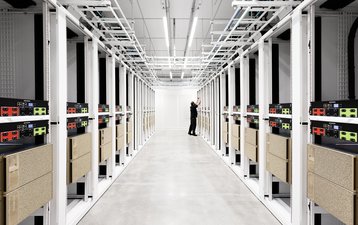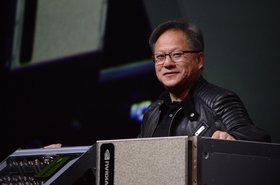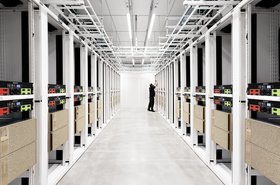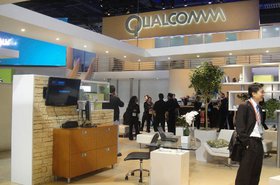Nvidia has formally launched its Cambridge-1 supercomputer at Kao Data's data center in Harlow.
Capable of eight petaflops of standard Linpack performance or 400 petaflops of 'AI compute,' Cambridge-1 is the UK's fastest supercomputer.
Built out of 80 of Nvidia's AI-focused GPU systems, the DGX A100, the supercomputer features 20 terabytes/sec InfiniBand, and 2 petabytes of NVMe memory.
The machine will be made available to healthcare and pharmaceutical researchers including AstraZeneca, GSK, Guy’s and St Thomas’ NHS Foundation Trust, King’s College London, and Oxford Nanopore Technologies. All of them are already using Nvidia DGX systems - a requirement to take part.
“Cambridge-1 will empower world-leading researchers in business and academia with the ability to perform their life’s work on the UK’s most powerful supercomputer, unlocking clues to disease and treatments at a scale and speed previously impossible in the UK," Nvidia CEO Jensen Huang said.
"The discoveries developed on Cambridge-1 will take shape in the UK, but the impact will be global, driving groundbreaking research that has the potential to benefit millions around the world.”
The system was developed nominally to help the healthcare sector and Nvidia's efforts to build AI tools for the lucrative industry. But it was also funded as part of its effort to convince the UK to approve its $40bn acquisition of Cambridge-based chip designer Arm.
At one point, Nvidia had hoped to get Prime Minister Boris Johnson, and then-Health Secretary Matt Hancock, to its opening ceremony, but both ultimately fell through.
Earlier this year, we spoke to Nvidia's VP of solutions architecture and engineering Marc Hamilton about the new supercomputer.
"We've got a lot of supercomputers in California and most of our researchers are in California," Hamilton said. "[We decided] why don't we build our supercomputer somewhere where we have a concentration of Nvidia employees - current or future - and customers?"




